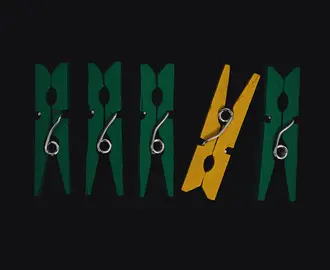Do you long for the days of Diet Crystal Pepsi and coffee-flavored Coca-Cola? If so, you just might be a “harbinger of failure.” This group of consumers has a knack for repeatedly purchasing flop products, as identified in a recent study by MIT Sloan professors in the Journal of Marketing Research.
“People who like yellow nail polish are the same people who like watermelon Oreo cookies,” said Duncan Simester, an MIT Sloan marketing professor and one of the study’s authors.
Understanding purchasing tendencies offers a telling glimpse into consumer behavior. Harbingers’ early adoption of a new product is a strong signal that a product will fail—the more they buy, the less likely it is that the product will succeed. Firms can identify these customers through past purchases of either new products that failed or existing products that few other customers purchase.
The study turns conventional wisdom on its head: Not all positive feedback is good feedback, and product sales don’t translate to success if the wrong people are buying. Instead, Harbingers buy things that appeal to a narrow slice of the marketplace.
Indeed, said Simester, 60 percent of all products fail. Co-author Catherine Tucker—a marketing professor at MIT Sloan—and Simester share lessons for market researchers who want to avoid promoting the next New Coke or Frito-Lay Lemonade.
Not all positive feedback is good. Instead, it’s important that the positive feedback on a new product or service comes from customers who have previously adopted products that ended up being hits in the marketplace.
Consider your customers’ history. When researching the kind of customers who like a new product or service, it’s important to also understand their history of liking products that flopped.
Look at the big picture. Though it might be natural to focus on whether customers liked products that flopped in your natural niche or product segment, it’s also instructive if they brought flop products in an entirely unrelated product segment. For example, if you’re selling batteries, it’s still troublesome if the customers who like your new innovation also liked Crystal Pepsi.
Beware the repeat harbinger. Ask not just whether the products your customers bought earlier were flops or successes but also how many of them they bought: If they bought multiple successive units of a product that flopped, then that’s a sure sign that they’re a harbinger of failure.
To identify these Harbingers, the study analyzed data sets from a prominent convenience store chain. One data set focused on aggregate transactions from 111 store branches for six years to track product survival; the other focused on individual-level transaction data for two years. The researchers followed 127,925 customers covering 10 million transactions using the retailer’s frequent shopping card (enabling the researchers to track actual purchase history).
If researchers can draw these conclusions about consumer behavior, what’s next? Maybe politics.
“The next question is, where else does this happen? We’re not sure yet, but we’re contemplating ideas. One idea might be, there are harbingers of political failure: donors to political campaigns who systematically give to losing campaigns,” Simester said.
Presidential hopefuls take note.



